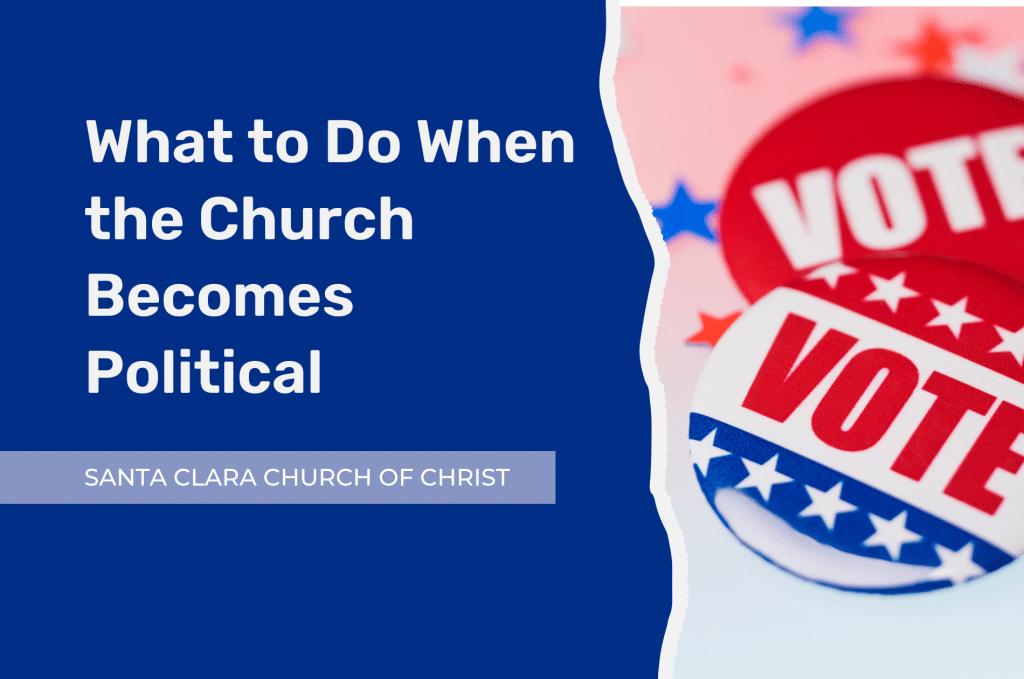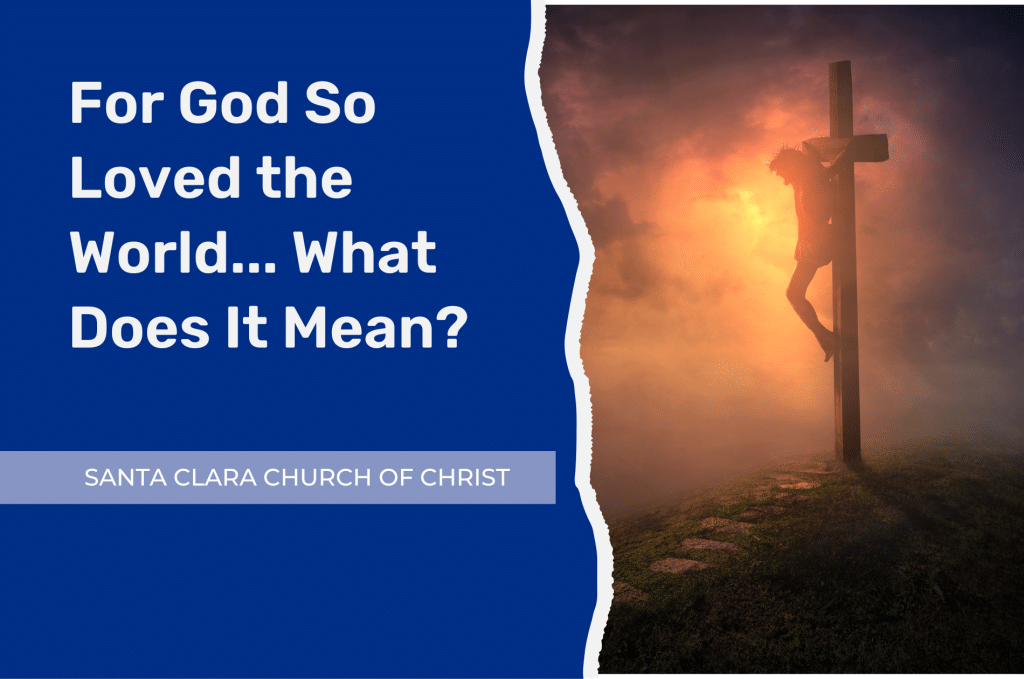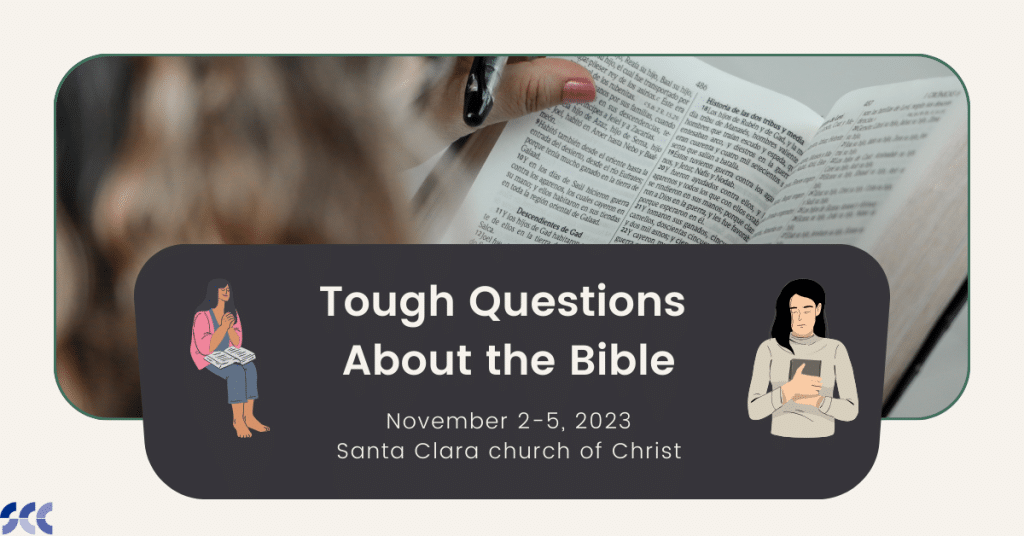According to the Bible, we go to worship services for several reasons. We sing together (Eph. 5:18), we encourage each other and “stir one another up to love and good works,” (Hebrews 10:24-25), and on Sundays, we take communion (Acts 20:7).
The sermons that we hear may be emotionally charged, but they should always be based on the Bible – not the opinions of man. That idea is actually stated plainly on our Santa Clara church about page when we invite you to “see just how simple, beautiful, and profound Biblically-based worship can be.”
That may be why it’s so jarring to walk into a church service somewhere and hear the preacher going off about a certain political party instead of preaching against sin. Even if the majority of the congregation aligns with what he’s saying, is it really the place for such talk?
Christians and Politics: Should They Ever Mix?

It’s virtually impossible for a christian to not have any kind of political beliefs whatsoever. Even if a person isn’t particularly active in politics, they still may have opinions about individual candidates, parties, or policies. It’s part of what makes us humans.
Paul alludes to this fact when he talks about the inability of humans to separate ourselves from all the influences of this world. To do that, he argues in 1 Corinthians 5:10, you would have to “leave this world.”
That hasn’t stopped some people from trying to do exactly that, however. Certain parts of the Essenes (a Jewish separatist group around the time of Christ) retreated into the wilderness to avoid humanity, and Christian monks thrived in isolation for centuries.
While these attempts are admirable, they ultimately miss what Jesus taught us to be, which is “lights” and “salt” to the world around us (Matthew 5:13-16). We have to engage with the world around us. It’s part of who we are.
Politics then, has to enter the conversation. A christian may form opinions about their local or federal government, but whether or not that enters the pulpit is a different story entirely.
What Did Jesus Say About Politics?
Much to the chagrin of the people around Him, Jesus actually took a pretty dismissive viewpoint towards the politics of the day.
That’s not to say that He was disrespectful of the local government – the Pharisees would have loved that since it would have given them a reason to have Him killed. When I say “dismissive,” I mean He generally didn’t place too much importance on their role in the big scheme of things.
Consider what He said about paying taxes: “Pay to Caesar the things that are Caesar’s, and to God the things that are God’s” (Matthew 22:21).
Or what He would tell Pilate directly: “You would have no authority over Me at all if it had not been given to you from above” (John 19:11).
From those two passages we learn a couple very important truths.
First, Jesus recognized that the government had its rightful place (Matthew 23:1-11). He didn’t mind paying taxes because that was what was owed to them to handle the affairs of everyday life.
Second, any authority that those governments do have derive their authority from the only true Authority, which is God. Pilate wouldn’t have had any authority over Jesus’ execution had it not been given to Him from a higher Authority.
Paul agrees with this conclusion in Romans 13:1: “Every person is to be subject to the governing authorities. For there is no authority except from God, and those which exist are established by God.”

This semi-neutral position would have been despised by just about everyone in the early world. Zealots would have preferred Him to be an extreme dissenter, ready to lead the cause for independence, whereas the Herodians wanted Jesus to be aligned with the Empire.
The fact that Jesus was almost dismissive of both sides provided just enough of a balance to make enemies all over the place.
Should Sermons Become Political?
Truthfully, preachers should operate the same way. When a church becomes political, it not only alienates one half of the listening audience, but it also meddles in affairs that are of secondary importance.
No one would disagree that issues like the national budget, foreign policy, and even healthcare are extremely important topics in today’s world, but they are not as important as your eternal soul. I don’t say that to undermine those topics but to reinforce the importance of salvation.
Jesus spent His time teaching about God because that was of supreme importance. Given the fact that preachers only have a couple hours at most every week to speak to the local church as a group, they should use it for the same purpose.
That’s not to say that certain political issues (such as abortion or homosexuality) can’t be addressed in the pulpit, but they should always be addressed in isolation – not as a “this party” or “that party” ideal.
Speak what the Bible speaks on those issues, not against a platform. In doing so, we’ll still achieve the objective of defending ourselves against the influence of the world while not making divisions that the Lord didn’t necessarily intend for us to make.
Dangers of Politicizing the Church
Outside of the church’s responsibility to only speak the Truth of God’s Word (and leave hobby horses aside), there are some real dangers that become present when a church becomes political.

Turn Off Willing Listeners
You simply don’t know who your audience is every week. No matter how long you’ve been a member at a congregation, you just don’t know who is sitting next to you. That person who you honestly believed is a diehard Republican may, in fact, be a card-carrying Democrat. Or Libertarian. Or Green Party. There is no way for you to know for certain without them updating you constantly on their voting status.
Now, multiply that number by how many people are in your congregation, add in the extra unknown voting statuses of your visitors, and you’ve got the potential for a very intellectually diverse group.
(Which is the way it should be. Jesus’ own twelve Apostles were a mix of radical extremists and tax agents, mixed in with some everyday fisherman. His immediate group was as different as his audience).
Imagine the damage that could be done if a preacher gets up in the pulpit and trashes an entire political party, instead of preaching the Bible? That person who may have been otherwise interested in the truth feels attacked, leaves, and may never come back. That’s not something any church wants on their conscience.
Parties Change. Christians Don’t.
200 years ago in the United States, the Federalists and Anti-Federalists dominated the political spectrum. Then came the Jeffersonian Republicans, then the Whigs, then the Democratic party.
Even though many of those groups may be the same as their predecessors, the fact remains that many political groups have changed over time. The democratic party of 2023 is different than my grandfather’s democratic party, and the same goes for the Republicans.
Christianity, however, does not change. Our beliefs – our “platform,” if you will – is the same now that it was when the church began 2,000 years ago. Let’s focus on that and leave the politics in the voting booth where it belongs.
Culture Doesn’t Impact Faith
The problem with addressing a political party is that their stance may very well change with time. Depending on what polls show, a candidate may be willing to change positions at the drop of a hat to gain votes.
Our faith, by contrast, doesn’t change with the times. Our faith is founded on the Rock, which doesn’t move, no matter what culture tells us.
Using the pulpit to address a political party is like trying to hit a moving target while riding in a car. It changes so much that you’re never quite sure where you should aim. And by the time you pull the trigger, the bullseye is in a different spot.
People don’t really change, though. When we talk about faith and hope and repentance and prayer, those are concepts that stay the same no matter what and are as necessary today as they were in Jesus’ day.
As such, our sermons stand the test of time. You can read a sermon from 400 years ago and find the content just as relevant as you can something today.
Does that happen with politics? Possibly, although I would argue it’s much less likely. The needs of the day are different, so the content is different too.
The need for humanity (i.e. salvation) hasn’t changed, so let’s spend our time addressing that instead.
When the Church Becomes Political, It’s Time For a Change
Preachers are human; at some point, it’s likely that a political comment will slip in every once in a while.
But there’s a huge difference between accidentally letting a personal belief drop in the middle of a sermon and delivering a 20 page treatise on the policies of Woodrow Wilson.
It all comes back to intent. How are preachers using the platform that they’ve been given? To effect temporary change in a physical world, or permanent change in an eternal soul?
That responsibility is huge (James 3:1), and it’s time preachers treated it as such.



